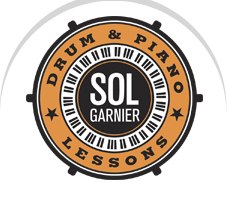I am a drum and piano teacher. And I teach improvisation on both instruments. It is a lot of fun. I’m pretty good at it, but I also know there are things I can’t teach. I can go step by step and tailor the progression to everyone personality and abilities. I can design different exercises that help to push the boundaries. But I cannot help someone mess around. And that is the most important thing a player can do to develop improvisational skills.
Messing around has so many benefits, it is almost impossible to list them all. I’ll go with the big themes.
One skill it develops is knowing her limitations. As the musician is exploring her melodic or rhythmic ideas, she’s also constantly reminded of what she can actually do with the instrument. Her level of technique will define what she can do to express herself.
Another hot button it will push is shyness. As she develops a theme, accents a note, comes back to a familiar pattern, whatever she does, she has to claim it as hers and hers only. She has to be in charge. She can try to play softly, she can try to play just a few notes, she can even try to not play at all, just thinking about what can be done will always oblige her to fight her shyness. And, as she gains a few patterns every week, a few ‘licks”, her confidence will grow. At least in music. Improvisation is great therapy.
Let’s see something else: enthusiasm. Improvisation, once confidence has been taken care of, even if a little, is very addictive. This phrase pushes for another one, and another one, and yet another one, always better, always more complicated, always faster, always louder. By the way, I do not know why enthusiasm expresses itself with ever more speed, volume or complexity, but that’s what I witness every time. Enthusiasm is a great lever for improvisation.
After enthusiasm comes control. That’s the step I try to teach to those madwomen I get in my studio, those who destroy harmony with brilliant chromatic runs or atomize the very spine of rhythm with gorgeous flurries of technique. Control imposes some rules that will need to be followed. For example, traditional jazz improv is usually based on a melody, on a theme. Be-bop is dependent upon a chord progression. Almost every style of music has some set of rules, a signature if you will that defines (and restrains) what can be done with it. The player has to be aware of them. So, after they roam around and explore ALL that can be done with their instrument, I invite them to consider the atmosphere they are improvising within. If it is rock, for example, it might not require those triplets jazzy variations they are so found of, and vice versa.
There is much more that improvisation helps a musician with. Concepts as big as the ones I just listed.
